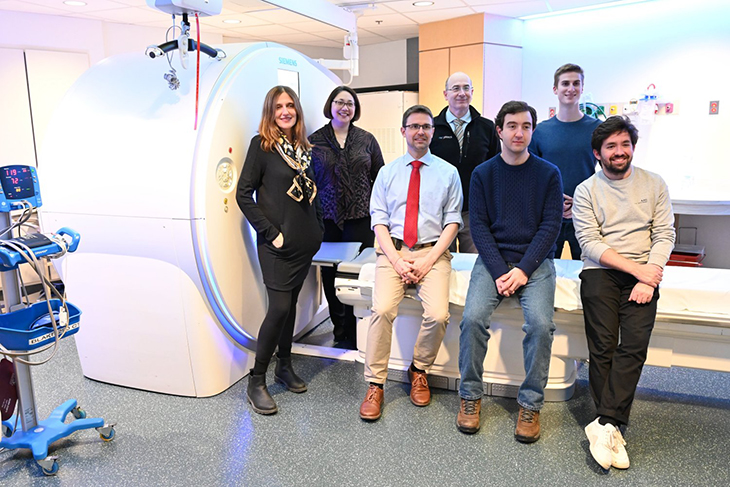
Researchers from Massachusetts Institute of Technology (MIT) have done it again, except this time, they developed a ‘new AI deep learning model’ with the ability to predict the risk of lung cancer up to six years in advance using a single low-dose CT scan.
According to the American Cancer Society, “Lung cancer is by far the leading cause of cancer death in the US, accounting for about 1 in 5 of all cancer deaths. Each year, more people die of lung cancer than of colon, breast, and prostate cancers combined.” Aside from causing more deaths than other cancers, it is also incredibly hard for doctors to detect the disease early just by looking at scans.
When it comes to lung cancer prediction, it usually needs a combination of clinical risk factors, demographic information, as well as radiological annotations. However, the new model named ‘Sybil’ was designed to use ‘a single dose chest scan to predict the risk of lung cancers occurring 1-6 years after a screening.’
According to co-first author and PhD student from MIT, Peter Mikhael, he likened the overall process of lung cancer screening to “trying to find a needle in a haystack.”
But using a diverse set of scans from at least two hospitals, as well as the National Lung Cancer Screening Trial, the study was able to show how Sybil managed to forecast ‘both short-term and long-term lung cancer risk, earning C-indices scores ranging from 0.75 to .080.’ Notably, values that are over 0.8 indicate a strong model, they add.
In addition, the model was even more successful in predicting cancer risk just one year in advance. It was able to get ‘between 0.86 to 0.94 on a ROC-AUC probability curve (considered excellent for AUC values with 1.00 being the highest possible score.)
There Was No Visible Cancer On the Scans
As for the imaging data used during Sybil’s training, most signs of cancer were largely absent since early-stage lung cancer usually takes up just small portions of the lung – with just a tiny fraction of the hundreds of thousands of pixels making up every CT scan.
That means the more dense portions of the lung tissue, also known as lung nodules, may be cancerous. However, most of them are not but rather, they’re airborne irritants or healed infections.
As for co-author of the study, Jeremy Wohlwend, was very surprised to see how well Sybil scored even though there was a lack of visible cancer.
He said, “We found that while we as humans couldn’t quite see where the cancer was, the model could still have some predictive power as to which lung would eventually develop cancer.”
The study, which was published in the Journal of Clinical Oncology, was led by Professor Regina Barzilay, alongside her research team from the Jameel Clinic at MIT. They also partnered with the Mass General Cancer Center and Chang Gung Memorial Hospital in Taiwan.
It’s the desire that this model brings the research community another step closer to both outgrow legacy systems used in the healthcare industry, while helping treat current and future patients with better technology.



